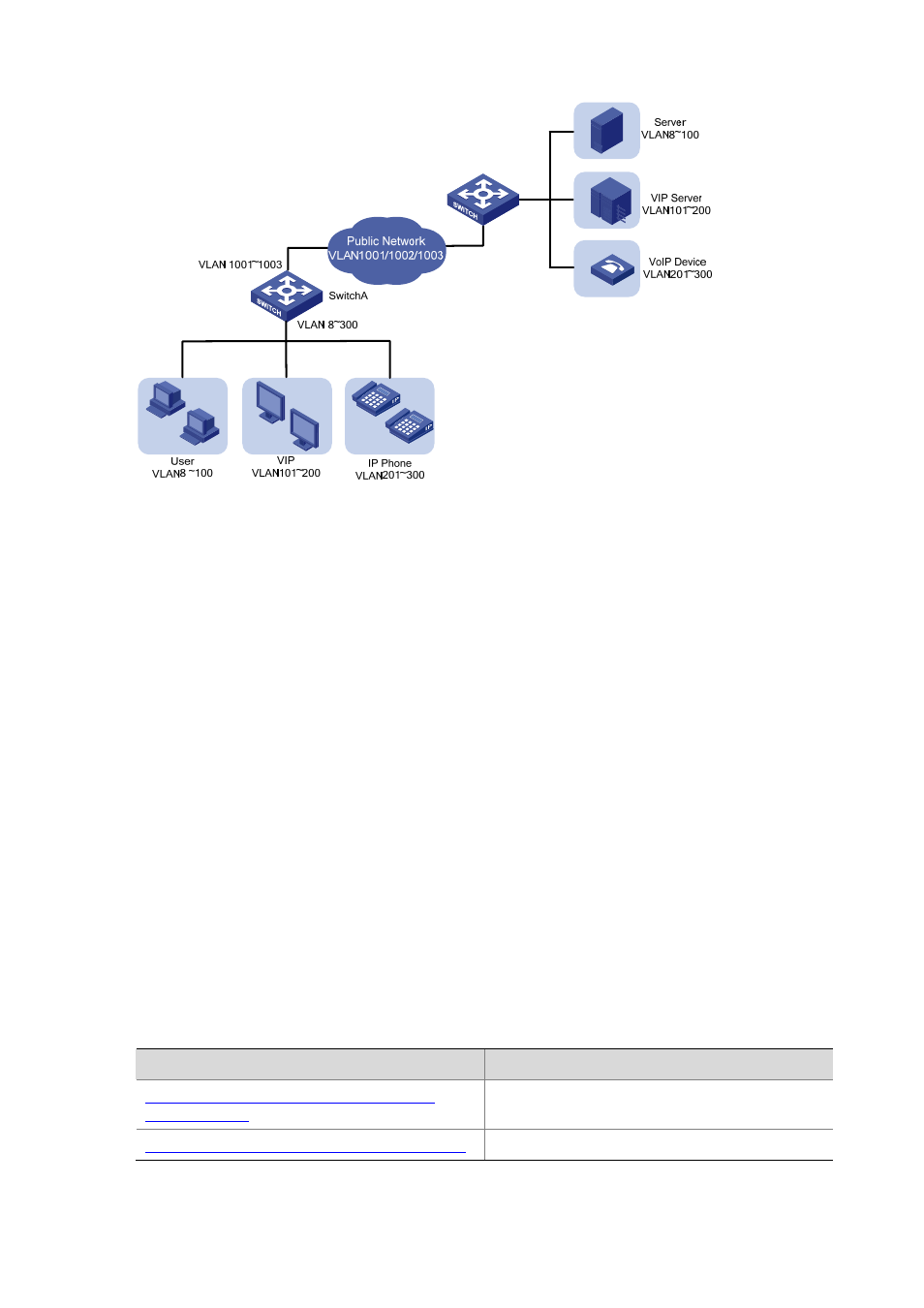Selective qinq configuration, Selective qinq configuration task list, Figure 2-1 – H3C Technologies H3C S3100 Series Switches User Manual
Page 846

2-2
Figure 2-1 Diagram for a selective QinQ implementation
In this implementation, Switch A is an access device of the service provider. The users connecting to it
include common customers (in VLAN 8 to VLAN 100), VIPs (in VLAN 101 to VLAN 200), and IP
telephone users (in VLAN 201 to VLAN 300). Packets of all these users are forwarded by Switch A to
the public network.
After the selective QinQ feature and the inner-to-outer tag mapping feature are enabled on the port
connecting Switch A to these users, the port will add different outer VLAN tags to the packets according
to their inner VLAN tags. For example, you can configure to add the tag of VLAN 1002 to the packets of
IP telephone users in VLAN 201 to VLAN 300 and forward the packets to the VoIP device, which is
responsible for processing IP telephone services.
To guarantee the quality of voice packet transmission, you can configure QoS policies in the public
network to reserve bandwidth for packets of VLAN 1002 and forward them preferentially.
In this way, you can configure different forwarding policies for data of different type of users, thus
improving the flexibility of network management. On the other hand, network resources are well utilized,
and users of the same type are also isolated by their inner VLAN tags. This helps to improve network
security.
Selective QinQ Configuration
Selective QinQ Configuration Task List
Complete the following tasks to configure selective QinQ:
Task
Remarks
Configuring Global Tag Mapping Rules for
Selective QinQ
Required
Enabling the Selective QinQ Feature for a Port
Optional